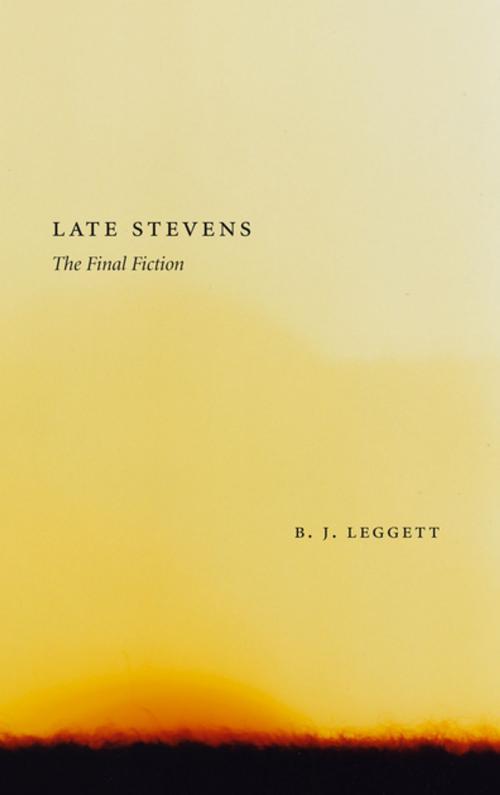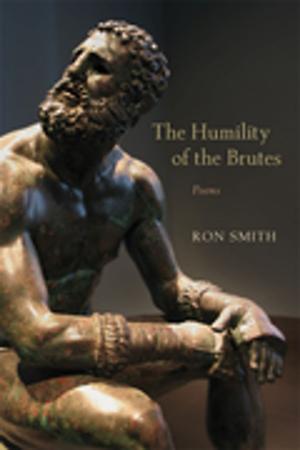| Author: | B. J. Leggett | ISBN: | 9780807166185 |
| Publisher: | LSU Press | Publication: | July 1, 2005 |
| Imprint: | LSU Press | Language: | English |
| Author: | B. J. Leggett |
| ISBN: | 9780807166185 |
| Publisher: | LSU Press |
| Publication: | July 1, 2005 |
| Imprint: | LSU Press |
| Language: | English |
“If one no longer believes in God (as truth),” Wallace Stevens once wrote, “it is not possible merely to disbelieve; it becomes necessary to believe in something else. . . . I say that one's final belief must be in a fiction.” Stevens addressed the concept of a "supreme fiction" throughout much of his career, but many critics feel that his poems never realized that concept beyond a theoretical possibility. B. J. Leggett argues that Stevens did indeed achieve the supreme fiction in his often overlooked late poems. To share in the poet's vision, though, Leggett finds that readers must understand the ingenious intertext that runs through this culminating body of work.
After three volumes of difficult and abstract poetry, Stevens in the last five years of his life reverted to a style that is refreshingly personal and accessible. Leggett gives close examination to The Rock, which is the closing section of Stevens's Collected Poems, and to the uncollected poems published as Opus Posthumous, supplying readers with the motifs, conventions, texts, and fictions—or intertext—on which these works' significance depends. He ultimately shows that there is a kind of master narrative in Stevens's late poems, one that is not always explicitly present but that is based on the supreme fiction. It is here that Stevens gives form to his belief.
Leggett traces the development of this fiction and demonstrates how knowledge of its presence dramatically changes the reading of key poems. His discussion of Schopenhauer's influence on Stevens, together with rich analyses of major poems, challenges to conventional interpretations, and speculation on the direction Stevens's poetry might have taken had he lived longer, all make for provocative reading. Late Stevens is a book for anyone who thought they knew this poet.
“If one no longer believes in God (as truth),” Wallace Stevens once wrote, “it is not possible merely to disbelieve; it becomes necessary to believe in something else. . . . I say that one's final belief must be in a fiction.” Stevens addressed the concept of a "supreme fiction" throughout much of his career, but many critics feel that his poems never realized that concept beyond a theoretical possibility. B. J. Leggett argues that Stevens did indeed achieve the supreme fiction in his often overlooked late poems. To share in the poet's vision, though, Leggett finds that readers must understand the ingenious intertext that runs through this culminating body of work.
After three volumes of difficult and abstract poetry, Stevens in the last five years of his life reverted to a style that is refreshingly personal and accessible. Leggett gives close examination to The Rock, which is the closing section of Stevens's Collected Poems, and to the uncollected poems published as Opus Posthumous, supplying readers with the motifs, conventions, texts, and fictions—or intertext—on which these works' significance depends. He ultimately shows that there is a kind of master narrative in Stevens's late poems, one that is not always explicitly present but that is based on the supreme fiction. It is here that Stevens gives form to his belief.
Leggett traces the development of this fiction and demonstrates how knowledge of its presence dramatically changes the reading of key poems. His discussion of Schopenhauer's influence on Stevens, together with rich analyses of major poems, challenges to conventional interpretations, and speculation on the direction Stevens's poetry might have taken had he lived longer, all make for provocative reading. Late Stevens is a book for anyone who thought they knew this poet.















